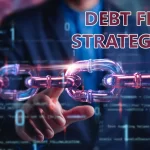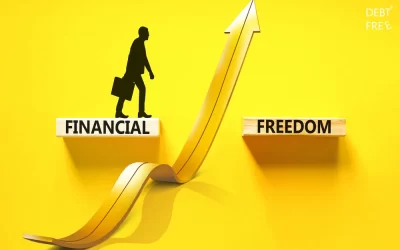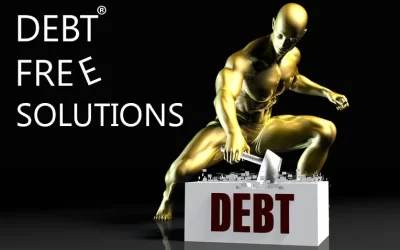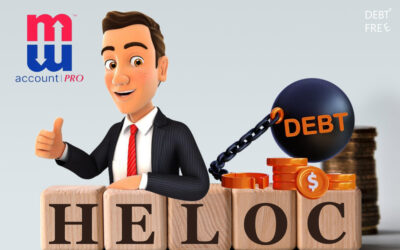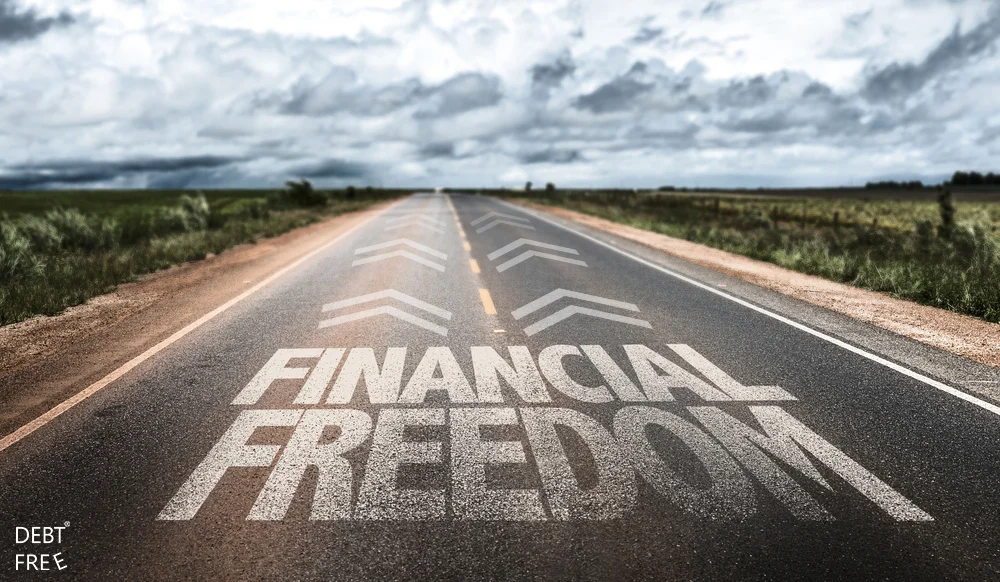

In today’s financial world, the aspiration for economic independence captivates many. Achieving this goal not only ensures the security of your finances but also transforms your life into a more fulfilling and stress-free journey. This article reveals crucial characteristics and effective strategies to help you break free from financial constraints. Picture yourself living without the burden of debt—it’s all about mastering money management and shaping a future unrestricted by monetary limits. By making wise decisions and implementing proven tactics, you can unlock opportunities for growth, guaranteeing long-term stability and personal fulfillment. Embrace strategic planning and disciplined saving to confidently step into a realm where financial worries are non-existent, opening up new possibilities that await you on the horizon.
Defining Economic Independence
Achieving financial independence means having the freedom to sustain your lifestyle without relying on debt or external financial support. It empowers you to make choices that enhance your quality of life, whether that involves traveling, pursuing hobbies, or simply enjoying peace of mind. To reach this state, it requires careful management of your finances and a commitment to living within your means.
The Benefits of Living Without Financial Burdens
Achieving a lifestyle liberated from financial obligations can greatly enhance your overall well-being. Here are some key benefits:
- Reduced Stress: Financial obligations can lead to anxiety and stress. Eliminating Debt can provide peace of mind.
- Increased Savings: Without monthly payments, you can allocate more funds towards savings and investments.
- Greater Flexibility: A life free from financial constraints allows for more freedom in making life choices, such as career changes or relocation.
Effective Strategies for Achieving Financial Freedom
To achieve a state of financial freedom, consider implementing the following strategies:
- Create a Budget: Start by tracking your expenses and income to understand where your money is going. This will help you identify areas where you can cut back and save more.
- Pay Off Debt: Prioritize paying off high-interest debts first to reduce the amount of money you are losing on interest payments each month.
- Save More: Set up automatic transfers to a savings account each month to build an emergency fund and work towards your financial goals.
- Invest Wisely: Consider investing in assets that have the potential for long-term growth, such as stocks or real estate, to increase your wealth over time.
- Live Below Your Means: Avoid lifestyle inflation by resisting the urge to spend more as your income increases. Instead, focus on saving and investing for the future.
By following these steps, you can take control of your finances and work towards achieving true Financial Independence.
1. Develop a Comprehensive Budget
Establishing a budget is the foundation of successful financial management. A well-structured budget empowers you to track your income and expenses, ensuring that you are living within your means. Here’s a straightforward budgeting framework:
| Category | Percentage of Income |
| Housing | 30% |
| Utilities | 10% |
| Food | 15% |
| Transportation | 10% |
| Savings | 20% |
| Discretionary Spending | 15% |
2. Prioritize Saving
Building a robust savings plan is crucial for financial security. Aim to save at least 20% of your income. Consider setting up an emergency fund to cover unexpected expenses, which can prevent you from falling back into debt.
3. Explore Additional Income Streams
Increasing your income can accelerate your journey towards financial independence. Look for opportunities to earn extra money through side jobs, freelance work, or passive income sources such as investments.
4. Manage and Eliminate Existing Financial Obligations
If you currently have debts, develop a plan to pay them off systematically. Consider the snowball method, where you focus on paying off the smallest debts first, or the avalanche method, where you tackle the highest interest debts first. Both methods can help you gain momentum and motivation.
Debt Repayment Calculator
Use this simple calculator to estimate how long it will take to pay off your debts based on your current payments and interest rates.
Tools and Resources for Financial Independence
To expedite your journey towards financial freedom, a plethora of tools and resources are available to streamline your money management. Here are some essential tools to consider:
1. Budgeting Apps
Discovering the perfect budgeting app can revolutionize the way you manage your finances. These tools offer a seamless way to keep track of your income and expenses, providing invaluable insights into your financial health. Here are some top-rated options that can help you achieve greater financial freedom:
| App Name | Key Features | Cost |
| Money Max Account | Eliminates all debts fast in 5 to 7 years | Base on individual |
| Mint | Automatic expense tracking, budgeting tools, credit score monitoring | Free |
| YNAB (You Need A Budget) | Goal setting, real-time tracking, educational resources | $11.99/month |
| EveryDollar | Simple budgeting, expense tracking, customizable categories | Free (with optional paid version) |
2. Financial Education Resources
Dedicating time to enhancing your financial knowledge can truly empower you to make well-informed decisions that will positively impact your money management. Here are some highly recommended resources:
- Books:
- The Total Money Makeover by Dave Ramsey
- Rich Dad Poor Dad by Robert Kiyosaki
- Your Money or Your Life by Vicki Robin
- Online Courses:
- Coursera: Personal Finance Courses
- Udemy: Financial Independence Courses
- Khan Academy: Personal Finance Lessons
3. Debt Management Tools
Effectively managing your existing debts is essential for achieving financial freedom. Here are some valuable tools to assist you in this process:
- Budgeting: Creating a detailed budget can help you track your expenses and identify areas where you can save money to pay off debts faster.
- Debt consolidation: Consolidating multiple debts into one lower-interest loan can make it easier to manage payments and reduce overall interest costs.
- Negotiating with creditors: Contacting your creditors to discuss payment plans or settlements can help alleviate the burden of debt and potentially lower the amount owed.
- Financial counseling: Seeking guidance from a financial counselor can provide personalized strategies for managing debt and improving your financial situation.
- Debt management programs: Enrolling in a reputable debt management program can offer structured repayment plans, negotiation with creditors, and support throughout the process.
By implementing these strategies, you can take control of your finances, reduce stress, and work towards a future free from overwhelming debt burdens.
| Tool Name | Purpose | Cost |
| Credit Karma | Credit score monitoring, debt repayment suggestions | Free |
| Undebt.it | Debt repayment planner, customizable payment strategies | Free (with premium options) |
| Debt Payoff Planner | Visualize debt repayment progress, track multiple debts | Free |
When considering a product or program focused on debt-free living, there are several key factors and decision-making considerations to keep in mind:
- Credibility of the Source: Research the background of the company or individual offering the product. Look for reviews, testimonials, and any professional credentials that lend credibility.
- Content Quality: Evaluate what is included in the program—books, courses, workshops—and assess whether it provides comprehensive and actionable advice tailored to your financial situation.
- Cost vs. Value: Consider whether the price of the product aligns with its potential benefits. Compare similar products to ensure you are getting good value for your investment.
- Personalization: Determine if the program offers personalized guidance or one-size-fits-all solutions. Personalized advice can be more effective in addressing unique financial situations.
- Practicality and Usability: Assess how practical and easy-to-implement the strategies are within your current lifestyle and financial circumstances.
- Support System: Check if there is ongoing support available through forums, coaching sessions, or customer service that can help you stay on track with your goals.
- Success Stories/Case Studies: Look for evidence of success from others who have used this product—real-life case studies can provide insight into its effectiveness.
- Flexibility and Adaptability: Ensure that any plan allows flexibility to adapt as personal circumstances change over time without derailing progress toward becoming debt-free.
- Risk Assessment and Guarantees: Understand any risks involved with following their methods (e.g., impact on credit score) and check if there is a money-back guarantee if expectations are not met.
- Alignment with Personal Values and Goals: Make sure that the program aligns with your personal values and financial goals.
Pros and Cons of Living Debt-Free
Embracing a debt-free lifestyle unlocks financial freedom and empowers you to take charge of your future. Discover how shedding debts can lead to effective money management, greater savings, and a more fulfilling life. By weighing the pros and cons, you’ll craft a robust plan for lasting independence from debt’s heavy chains.
| Pros | Cons |
| Improved financial security | Potentially slower wealth accumulation |
| Reduced stress and anxiety | Limited access to credit for emergencies |
| Greater freedom in life choices | May require lifestyle adjustments |
| Increased savings potential | Initial sacrifices may be necessary |
Key Takeaways
As you embark on your journey towards financial independence, keep these essential points in mind:
- Establish a realistic budget and stick to it.
- Prioritize saving and build an emergency fund.
- Explore additional income streams to accelerate your financial goals.
- Utilize available tools and resources to manage your finances effectively.
- Understand the pros and cons of living without debt to make informed decisions.
Conclusion
Embarking on the journey to achieve financial independence is a transformative experience that demands unwavering commitment and meticulous planning. By grasping the advantages of embracing a debt-free lifestyle and implementing proven strategies, you can chart a course towards a more stable and gratifying future. Be sure to stay tuned for the latter part of this article, where we will explore the Money Max Account is available to support you along this path.

